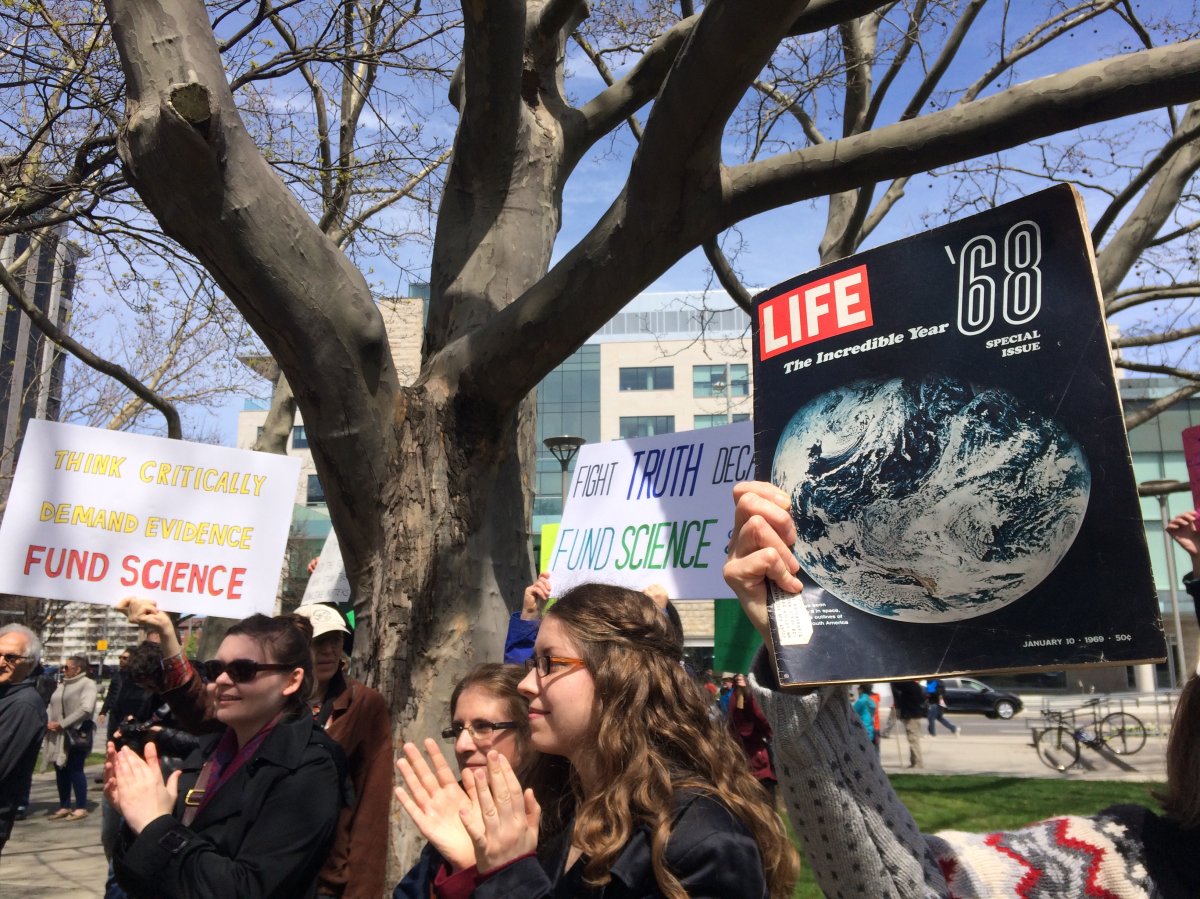Supporters of science gathered in hundreds of cities across the globe Saturday and Hamilton was no exception.

Organizers say over 300 people came out to Hamilton’s March For Science at City Hall Saturday afternoon.
The event was planned to bring attention to what organizers call “the mischaracterization of science as a partisan issue.”
Lynda McCarthy, a professor at Ryerson University, says society giving equal time to what she calls ‘pseudo-science’ has corrupted people’s belief in scientific evidence.
“Anti-evolution leagues, climate change deniers, conspiracy theorists and the like have always been present in small numbers,” McCarthy said. “However, many years ago, their numbers and boldness grew, as society started to give them equal time and they began to corrupt our very belief in the evidence-based data system that we’ve upheld as the gold standard in progressive society since the days even before the Renaissance.”
“Lake Erie is again massively polluted, preventable childhood diseases are on the rise, and the once mighty and noble United States Environmental Protection Agency is in the process, after almost half a century of trying to help protect the environment, of being dismantled under the current political administration in America.”
Mark Brown, a clinical pharmacologist at Juravinski Cancer Centre, says people should be asking questions and getting informed.
“The conversation about evidence-supported medical decision making can start at any time and at any level,” Brown said. “The ocean of information affecting our health is ever expanding, and it needs to expand further. Read, criticize, have a conversation. We should ask about well-designed studies, about the quality of the evidence that’s being used to make the most important decisions in our lives.”
The March for Science was planned to coincide with Earth Day, highlighting ongoing issues with how climate change is being addressed in political policy.







Comments